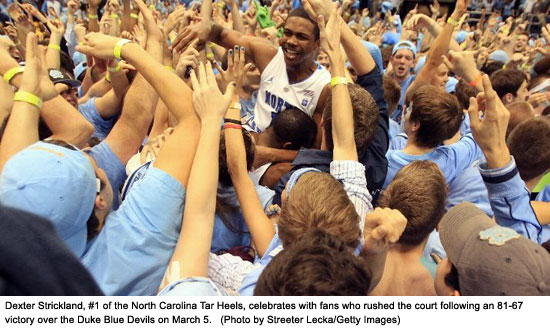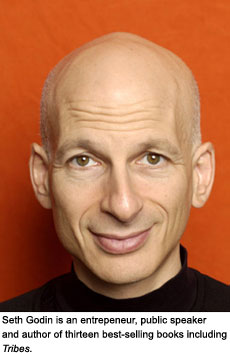Related Posts
var a2a_config = a2a_config || {};
a2a_config.linkurl = "http://mondaymorning.web.unc.edu/2011/03/07/tribes-and-teams/";
What a game!
That was a great men’s basketball game Saturday night! We beat Duke 81-67! We watched on TV. The Dean Dome must have been amazing with all the excitement.
Reading Tribes
I just finished a short but powerful book—Tribes by Seth Godin. It’s a contemporary, social media take on leadership. Godin defines a tribe “as a group of people connected to one another, connected to a leader and connected to an idea.” (p.1) In the old days, tribes were related in some geographical or other defined context. Now, with the internet, that’s all changed.
Godin says “So here we are. We live in a world where we have the leverage to make things happen, the desire to do work we believe in, and a marketplace that is begging us to be remarkable. And yet, in the middle of these changes, we still get stuck.” (p.10)
Godin reminded me that with all our 21st century tools, we, as humans, often create bureaucratic, complicated systems even when they are not required or needed. We should not manage ideas and people the way they used to be managed—using fear, secrecy, lack of information, rank and other tools to keep people in their places. The best ideas are those that can go viral and be improved upon by others. Change is going to happen whether or not we want it. So, we had better embrace it. Change is the new normal.
Over the next few months, I will be asking people in our School’s central administration units to look for ways to modernize and streamline how we think and behave. (We cannot ignore rules about business or research compliance.) We have fewer people, less money and more demands on us. It is a great time for change and to liberate ourselves from self-made rules and barriers that are not required.
Hope our students and others are enjoying spring break. Happy Monday. Barbara
